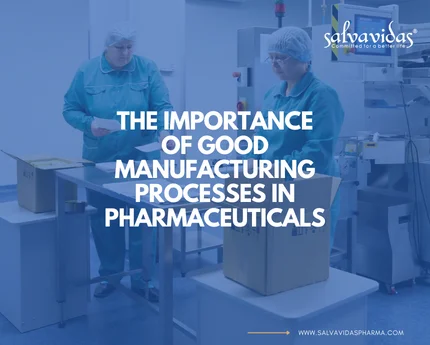
Introduction:
The pharmaceutical industry plays a crucial role in the healthcare sector by producing drugs that are safe, effective, and of high quality. Good manufacturing practices (GMP) are the foundation of quality assurance in the pharmaceutical industry. GMP encompasses all aspects of the drug manufacturing process, from the raw materials used to the final product’s packaging and labeling. The goal of GMP is to ensure that drugs are manufactured consistently and meet quality standards that are safe for human consumption. In this article, we will discuss the importance of good manufacturing processes in pharmaceuticals.
- Ensuring product quality and safety
- Regulatory compliance and legal requirements
- Maintaining public trust and reputation
- Improving operational efficiency and reducing costs
Raw material quality control
Product testing and analysis
Cleanroom and equipment maintenance
Personnel training and hygiene
FDA regulations in the USA
EMA regulations in the EU
ICH guidelines for global harmonization
Consumer confidence and product loyalty
Minimizing product recalls and liability risks
Avoiding negative publicity and reputational damage
Process optimization and waste reduction
Continuous improvement and innovation
Meeting market demand and staying competitive
Bullet points:
- Good manufacturing processes ensure that the final product is of high quality, safe, and effective for human consumption.
- The regulatory requirements for GMP are strict and necessary to protect public health and safety.
- The pharmaceutical industry’s reputation depends on producing safe and effective drugs, which requires compliance with GMP.
- Following GMP can help reduce costs and increase operational efficiency by optimizing processes and reducing waste.
FAQs:
Q. What is GMP, and why is it important in the pharmaceutical industry?
A. GMP is a set of guidelines and regulations that ensure pharmaceuticals are manufactured consistently, safely, and with high quality. GMP is essential in the pharmaceutical industry to ensure the safety and efficacy of drugs.
Q. Who sets the standards for GMP in the pharmaceutical industry?
A. Regulatory authorities such as the FDA in the USA, EMA in the EU, and WHO on a global level set the standards for GMP in the pharmaceutical industry.
Q. What are the consequences of not following GMP in the pharmaceutical industry?
A. Not following GMP can lead to product recalls, legal action, damage to the company’s reputation, and harm to the public.
Conclusion:
Good manufacturing processes are crucial in the pharmaceutical industry to ensure that drugs are of high quality, safe, and effective for human consumption. GMP is necessary to comply with regulatory requirements, maintain public trust and reputation, and reduce costs by optimizing processes. Pharmaceutical companies must follow GMP to produce safe and effective drugs that meet quality standards, protect public health and safety, and maintain consumer confidence. The importance of good manufacturing processes in pharmaceuticals cannot be overstated, and failure to comply with GMP can have serious consequences for both the company and the public. In conclusion, good manufacturing processes are essential for the pharmaceutical industry to produce safe and effective drugs that meet regulatory requirements and quality standards. GMP is the foundation of quality assurance in the pharmaceutical industry, and companies that follow GMP can maintain public trust and reputation, reduce costs, and improve operational efficiency. Failure to comply with GMP can have severe consequences for both the company and the public. Thus, it is crucial for pharmaceutical companies to follow GMP to ensure the safety, quality, and efficacy of their products. The importance of good manufacturing processes in pharmaceuticals cannot be emphasized enough, and it is necessary to ensure that the drugs produced are of high quality, safe, and effective for human consumption.

0